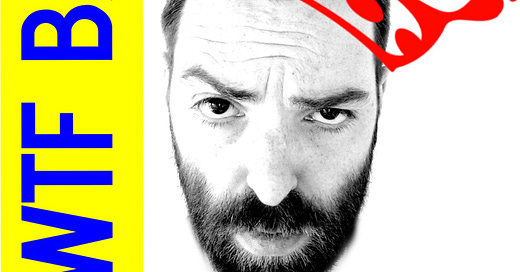Question: If a piece of music is perfect both on its head and also its feet, which one is the inversion?
A few important things I neglected to mention in the 11th counterpoint, but where to go after that 11th fugue anyhow? Into the mirror…
Bach, not satisfied with creating a triple fugue whose subjects were the same three subjects of the previous triple fugue- inverted- now pens a four-voice fugue where the entire texture will be inverted to create a new composition altogether. It's like writing two fugues at once. This can be done with any piece of music, but only Bach could make such a complicated composition sound like beautiful and convincing music both right-side-up and upside-down.
--
Follow Evan on Instagram for even more Bachian content: www.instagram.com/WTFBach
Find a selected playlist of the music found and discussed in this podcast here: https://open.spotify.com/playlist/1Ha250UDFktGqZjpt1hk7L?si=fIqZwtTUQJmzB9SYwskeYA
... have you seen: http://bachchurch.com ???
We Rely On Listener Support! How to Donate to this Podcast:
The best way to support this podcast, is to become a paid subscriber at wtfbach.substack.com
Enough paid subscribers = exclusive content, monthly merchandise giveaways!
You can also make a one-time donation here:
Thank you for listening! Thank you for your support.
Reach us at Bach (at) WTFBach (dot com)













Share this post